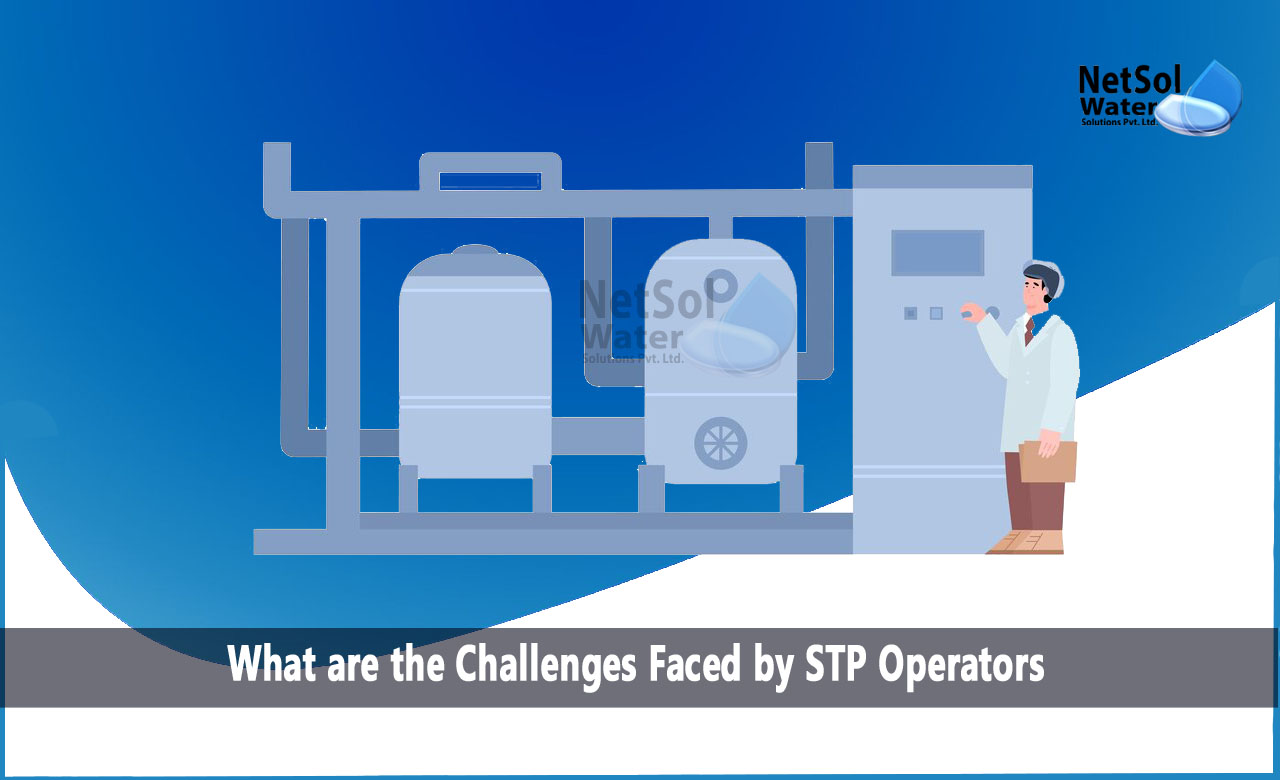What are the Challenges Faced by STP Operators?
Sewage treatment plant (STP) operators play a crucial role in ensuring the efficient and effective treatment of wastewater, safeguarding public health, and protecting the environment. They face unique challenges and responsibilities in managing complex treatment processes and maintaining the integrity of STP operations. In this blog, we will explore the perspectives of STP operators, discussing the challenges they encounter, the rewards of their profession, and the importance of continuous professional development for enhancing their skills and knowledge.
Challenges Faced by STP Operators:
Operating a sewage treatment plant presents a range of challenges for operators. These challenges include:
1. Process Management: STP operators are responsible for managing and optimizing the various treatment processes involved in wastewater treatment. They must monitor parameters, adjust equipment settings, and troubleshoot any operational issues to ensure efficient treatment and compliance with regulatory standards. Dealing with the complexities of multiple treatment stages and maintaining proper process control can be challenging.
2. Safety and Health: STP operators work in an environment that can pose various safety hazards. They handle chemicals, operate machinery, and are exposed to potentially harmful substances. Operators must strictly adhere to safety protocols, wear personal protective equipment, and be vigilant to minimize the risk of accidents or health issues.
3. Environmental Compliance: STP operators must ensure that the plant complies with environmental regulations and permit requirements. This involves monitoring and testing water quality, maintainingaccurate records, and implementing necessary adjustments to treatment processes to meet regulatory standards. The ever-changing nature of regulations and the need for continuous monitoring and reporting can be demanding.
4. Emergency Response: STP operators must be prepared to respond to emergencies, such as equipment failures, power outages, or extreme weather events. They need to have contingency plans in place, quick decision-making skills, and the ability to coordinate response efforts to mitigate any adverse effects on treatment processes and prevent environmental damage.
Rewards and Fulfillment:
Despite the challenges, STP operators find their work rewarding and fulfilling for several reasons:
1. Environmental Stewardship: STP operators actively contribute to environmental stewardship by ensuring that wastewater is treated effectively before being discharged into natural water bodies. They play a vital role in protecting water resources, aquatic life, and the overall ecosystem. Knowing that their work directly contributes to environmental sustainability is a significant source of satisfaction.
2. Public Health Impact: STP operators play a crucial role in safeguarding public health. By effectively treating wastewater, they help prevent the spread of diseases and protect communities from potential health risks. Knowing that their work directly contributes to improving public health outcomes is rewarding and provides a sense of purpose.
3. Job Stability: STP operators often enjoy job stability due to the constant demand for wastewater treatment services. As population growth continues and environmental regulations become stricter, the need for skilled operators remains high. This stability provides job security and opportunities for long-term career growth.
4. Technological Advancements: Advancements in wastewater treatment technologies offer opportunities for operators to work with state-of-the-art equipment and innovative processes. Embracing new technologies not only enhances treatment efficiency but also provides operators with opportunities to expand their knowledge and skills, making their work dynamic and intellectually stimulating.
Professional Development:
Continuous professional development is vital for STP operators to keep up with evolving industry standards, regulatory requirements, and technological advancements. Some key aspects of professional development include:
1. Training Programs: Operators should have access to regular training programs that cover various aspects of wastewater treatment, safety protocols, emergency response, and regulatory compliance. These programs help operators enhance their knowledge and skills and stay up to date with the latest industry practices.
2. Certification and Licensing: Obtaining relevant certifications and licenses demonstrates competence and ensures compliance with regulatory requirements. Operators should pursue certifications offered by professional organizations or government agencies to validate their expertise and enhance their professional credibility.
3. Networking and Knowledge Sharing: Participating in industry conferences, seminars, and workshops provides opportunities for operators to network with peers, share experiences, and learn from each other. This collaborative approach fosters the exchange of best practices and promotes continuous learning.
4. Access to Resources and Technology: STP operators should have access to resources, such as technical manuals, research papers, and online databases, to stay informed about the latest developments in wastewater treatment. Additionally, access to advanced monitoring and control systems enables operators to optimize plant performance and respond effectively to changing operational conditions.
Conclusion:
Sewage treatment plant operators play a vital role in maintaining the efficiency and effectiveness of wastewater treatment processes. Despite the challenges they face, operators find fulfillment in their work, knowing that they contribute to environmental sustainability and public health. Continuous professional development is crucial for operators to stay updated with industry trends, regulatory requirements, and technological advancements. By investing in the professional development of STP operators, we ensure the continued success of wastewater treatment operations and the protection of our environment for future generations.



